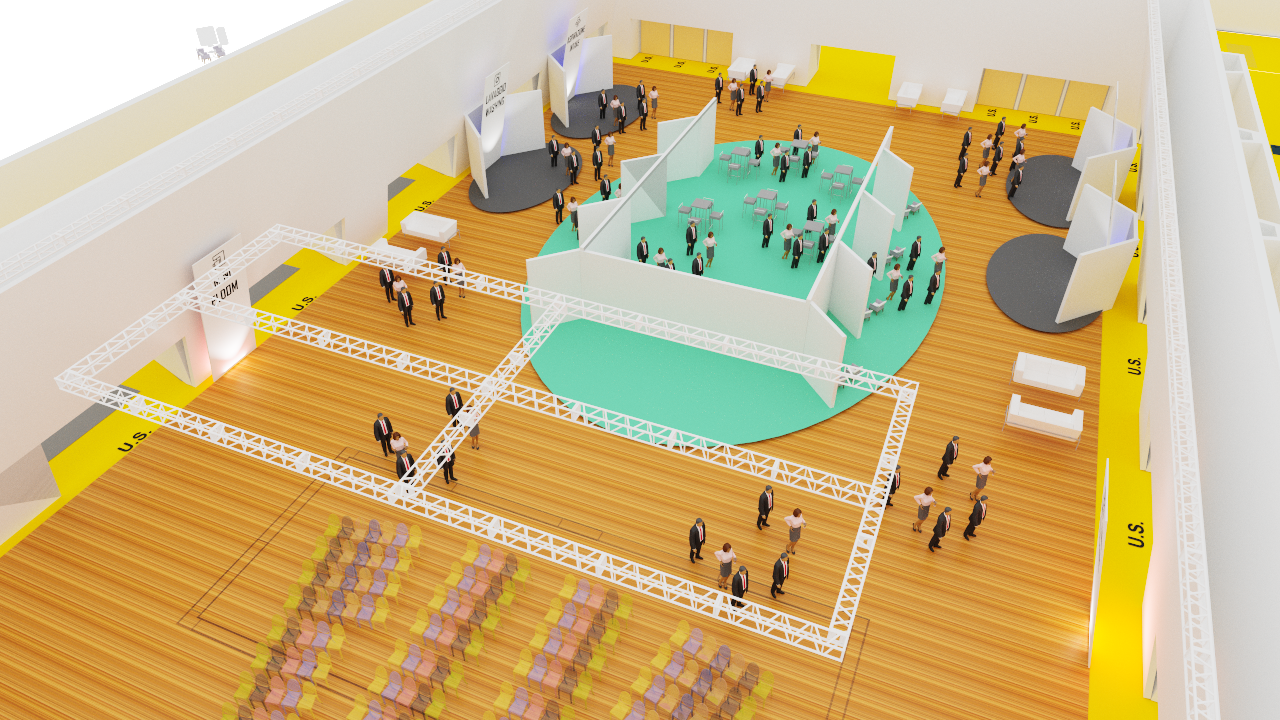 At Atelier Appliances Match It 2019, event organized by Senaf in collaboration with the hafactory review, component manufacturers meet household appliance producers to share know-how and to reflect on the sector’s prospects.
At Atelier Appliances Match It 2019, event organized by Senaf in collaboration with the hafactory review, component manufacturers meet household appliance producers to share know-how and to reflect on the sector’s prospects.
by Elena Corti

Over the last few years, the importance of networking for Italian companies has been often underlined. This happens in the ambit of Atelier Appliances Match It, event of international scope that sees component manufacturers and the managers of the primary white good brands to outline, together, the sector’s trend. The scientific committee of the event is composed by authoritative professionals to whom we have asked a short comment on the key topics of the initiative, starting from Internet of Things.

“IoT is playing a relevant role in bringing innovation at home – explains Angela Tumino, Director of the IoT Observatory of Polimi -. Let us consider that, according to what highlighted by our Internet of Things Observatory, during 2018 the market of IoT solutions for the smart home in Italy reached 380 million Euros, with the 52% growth versus 2017. Smart household appliances rank among the best-seller solutions in 2018: this category of products achieved the 14% share of the overall market (about 55 million Euros), holding the third place in the smart home market (after safety solutions and the smart speakers by Google and Amazon). Moreover, the innovation provided by the IoT does not concern only products but it can be extended to services, too. Some offers start appearing and, due to the connectivity and the consequent possibility of monitoring the household appliance operation from remote, they offer advanced maintenance services”. Can IoT be an opportunity also for the companies that produce household appliance components? “Certainly – states Angela Tumino – even if, to seize it, component manufacturers must be able to transform their business adequately. Smart household appliances require it is possible to monitor the operation of several components, and this implies the need of innovating also upstream the production chain, to succeed in maintaining (or hopefully gaining) market shares, standing out from suppliers of low value/cost components. However, IoT is an opportunity also from another point of view: a connected component can provide important information also about the real use modalities of the product and this can give precious indications to designers in the development phase of new products”.

Therefore, digitalization is disruptively changing the entire appliance world. “Disruption means breaking off, discontinuity – explains Antonio Besana, Management Consultant -. The matter, then, is not developing products that perform the same things better, and neither innovating with new products, but implementing something that makes all previous products obsolete. In the early phases, the opportunity offered by the digital connection were only partly reaped. Perhaps, we missed an adequate communication able to explain consumers not only the operation and the advantages of domotics but also the need of relying on the infrastructures of the connected home. The purchase of products with new functions has sometimes disappointed buyers, either because they did not work owing to missing connection or because too difficult to use. Therefore, both the manufacturing chain and distribution must, on one hand, renew their creativity and communication efforts, to talk to potential buyers simply, not about technical features but about benefits, and on the other hand they must establish relationships with consumers and involve them at experiential level, encouraging the exploration of new solutions, while listening to them to understand and to anticipate their requirements. Successful products, in fact, are nothing but an integrated mix of experiences”.

Carlo Alberto Carnevale Maffé, Professor of Strategy and Entrepreneurship at SDA Bocconi School of Management, underlines instead the two challenges that Italian component manufacturers must face in the digital transformation ambit. “The first is modularity: components must in fact preserve the Italian flexibility of the almost “tailored” engineering but also grant a high use modularity, applied not only to technical-engineering aspects but also to control systems, electronics and so on. We must ensure a high adaptation rapidity of the component manufacturer’s technological core to the OEM’s architectural scheme.
The other challenge is interoperability, through which components, expected to integrate more and more intelligence, will achieve better communication skills. The smart appliances of the future will need to interface with final customers as well as with each single components of their base list. Moreover, it is essential to conceive interoperability “ex ante”, it must be integrated into engineering. Besides, these two challenges do not concern just technical-engineering aspects but also commercial ones. If components are modular and interfaceable, I can for instance use B2B platforms shared with OEM, maintenance and installation operators, and carry out co-engineering, co-design or co-working activities. Finally, enterprises must create a digital ecosystem, which is fundamental for the data sharing among the various chain players: technical, sale and use data. It will be so possible to create a sort of data-lake, which is important because data have really value only if they are exchanged”.

Design is a further area of discussion for the participants in Atelier Appliances Match It. “The new trends in the design of a household appliance involve various aspects – explains Francesco Zurlo, Vice-Dean of the Design Faculty of Milan Polytechnic -. There is a trend linked with the environmental sustainability, imposing that products must be more and more easily disassembled and, if possible, monomateric. In fact, the fewer are materials the easier is the integration inside a circular economy process. Worth noticing, then, a trend stemming from socio-cultural aspects. While designing a product, it is fundamental to consider the context in which it will be introduced (how a typical family is composed, how the arrangement of the various home spaces is changing, what are consumers’ habits and so on). Let us just consider, for instance, that today many people pay utmost attention to the food quality: this trend influences the characteristics of the appliances designed to conserve, to prepare and to cook foods (just think of the increasingly efficacious differentiation of the refrigerator’s compartments to preserve the organoleptic qualities of food or of smart cooking systems). Digitalization makes household appliance more and more sophisticated and probably, in the next future, the interaction through voice control or gesture use will exert an impact on the design of these products, too. Currently, a key issue certainly remains interoperability, to create a common language allowing objects to dialogue one another.
Another trend concerns the higher and higher relevance of innovation-oriented design inside business organizations. Finally, another element worth pointing out is enterprises’ propensity for searching for a vision in designers: companies with which we develop some projects often ask us to help them understand the future scenarios”.




